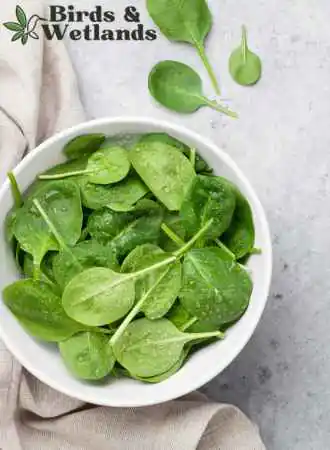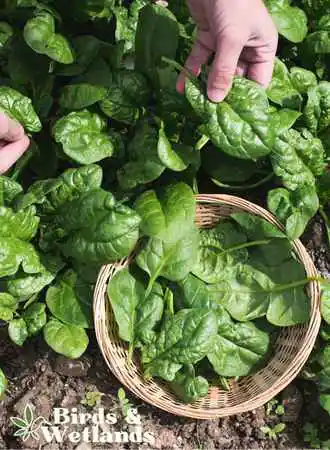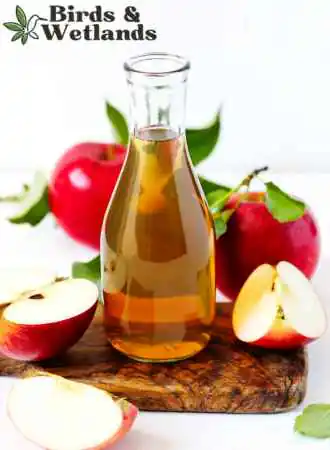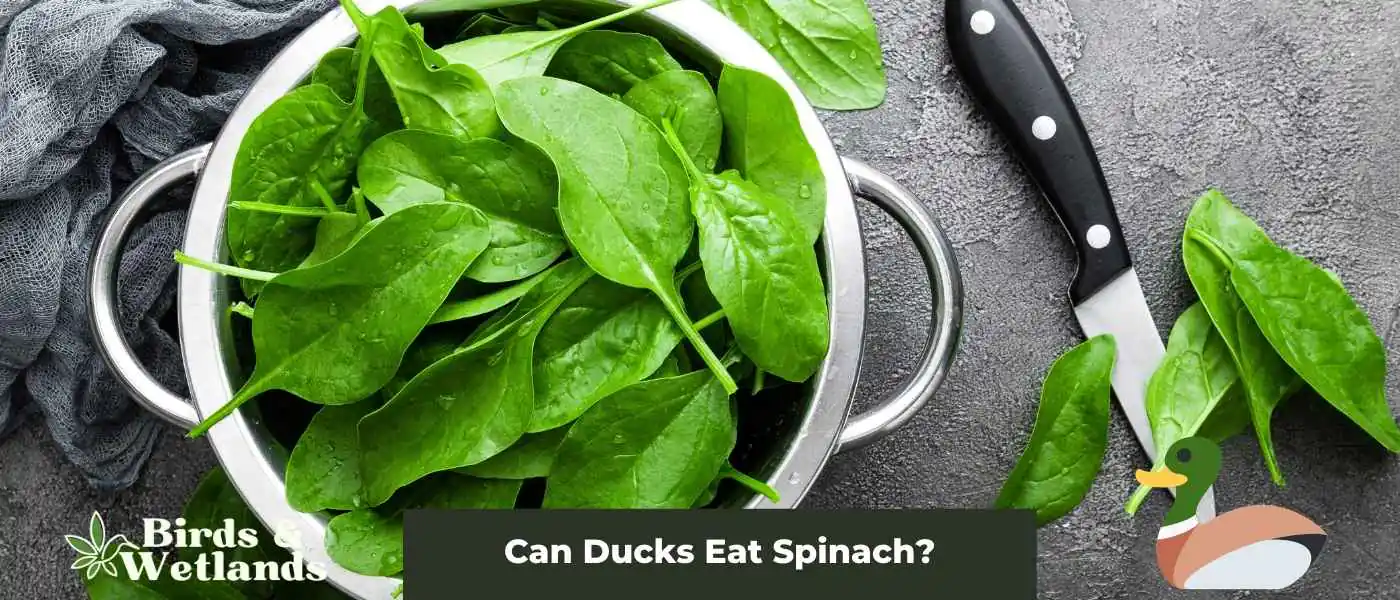While many foods may seem like a healthy choice, not all of them are easily digested by ducks. Spinach, with its high vitamin and mineral content, may seem like a nutritious option, but is it safe for our feathered friends to consume?

Get ready to quack up and learn everything you need to know about feeding your ducks spinach.
Can ducks eat spinach?
Yes, ducks can eat spinach as it is a safe and nutritious food option. Spinach is rich in vitamins, minerals, and antioxidants, which can contribute to a duck’s overall health. However, offer spinach in moderation and chop it into small pieces for easier consumption.
Key Takeaways on Feeding Ducks Spinach
- You can feed spinach to ducks but do so in moderation. Spinach contains oxalic acid, which can harm ducks in large amounts.
- Ducks can eat both raw and cooked spinach. When cooking spinach for your ducks, avoid adding seasoning or salt.
- Cut spinach into smaller bite-sized pieces before feeding them to ducks.
Do Ducks Love Spinach?

Domestic and wild ducks are often seen eating grass, bugs, and other small creatures, but they also enjoy leafy veggies. Spinach, romaine lettuce, beet greens and other greens are some of their favorite foods.
Adult ducks like to eat these vegetables because they are a good source of nutrients and help to keep them healthy. The leafy greens also give ducks a lot of energy, which they need for flying and swimming.
Feeding ducks spinach has its own risk so make sure you are aware of them.
Can Ducks Eat Raw Spinach?
When ducks eat these vegetables, they usually tear off small pieces with their beaks and swallow them whole. So if you ever see a duck eating spinach or iceberg lettuce, you can be sure it’s enjoying its meal.
You might not think ducks would be interested in eating spinach, but they enjoy the leafy vegetable. However, spinach needs to be chopped into smaller pieces and served in water for ducks to eat it.
Ducks don’t have teeth, so they can’t chew their food very well. This means that they need to be able to swallow their food whole. If the spinach is cut into small pieces, it will be easier for the duck to eat it and won’t choke on it.
Additionally, ducks need to drink a lot of water, so serving the spinach in water will help to keep them hydrated.
Ducks are commonly fed spinach, a healthy vegetable with high levels of vitamins A and C as well as folic acid.
However, spinach also contains oxalic acid, which can harm ducks in large amounts. Ducks consuming too much spinach will have calcium absorption problems.
For this reason, it is crucial to feed spinach to ducks in moderation. While a bit of spinach is good for ducks, too much can severely affect their health.
Can Ducklings Eat Spinach?

Baby ducks can eat spinach. But it’s important to feed spinach to younger ducklings in moderation. When fed in moderation, raw or cooked spinach provides essential nutrients that help ducklings to grow and thrive.
However, when overfed, oxalic acid can build up in their system and cause health problems. Make sure you are aware of the effects of feeding spinach to ducks.
FAQs on Ducks and Spinach
What Is Oxalic Acid in Plants?
Oxalic acid is a type of organic acid found in many plants, including spinach. It is a key player in calcium regulation in plants and fungi. It helps to keep calcium concentrations in check, which is important for the growth of hyphae.
When calcium levels get too high, oxalic acid can quench them and protect the fungus from potential toxicity.
Why Is Oxalic Acid Bad for Ducks?
Oxalic acid is bad for ducks because it can bind with calcium in the duck’s gut, preventing it from absorbing this essential mineral. This can lead to health problems for the duck, including skeletal deformities and other calcium-related issues.
Ducks need a diet that includes plenty of calcium to stay healthy, so avoid regularly feeding them foods that contain high levels of oxalic acid, such as spinach.
Can Ducks Consume Apple Cider Vinegar?

While ducks might not be the first animal that comes to mind when you think of apple cider vinegar, it turns out that this humble pantry staple can offer several benefits for our feathered friends.
Apple cider vinegar helps improve mineral and vitamin absorption in ducks. Additionally, vinegar’s acetic acid can help kill harmful bacteria, boosting the duck’s immune system and stomach acids. And finally, apple cider vinegar can also help to stimulate the appetite, making it an ideal supplement for ducks’ diet.
Other Foods to Consider for Ducks
| Lettuce | Ducks and Lettuce: A Healthy Combo? |
| Cabbage | Do Ducks Enjoy Cabbage? |
| Cauliflower | Can Ducks Safely Eat Cauliflower? |
| Brussel Sprouts | Are Brussel Sprouts Duck-Friendly? |
| Mango | Is mango a tasty treat for ducks? |
Best Duck Feed Pellets
Are you a duck owner looking for the perfect feed to keep your feathered friends happy and healthy? Look no further than Purina Duck Feed Pellets! With their nutritionally balanced formula and high-quality ingredients, these pellets are the ultimate solution for providing your ducks with the nutrition they need to thrive.
Pros
- Complete Nutrition: Purina Duck Feed Pellets are nutritionally balanced to provide all the essential vitamins and minerals that ducks need to stay healthy and strong.
- Easy to Digest: The pellets are specially formulated to be easy to digest, which makes them ideal for ducks of all ages.
- Promotes Growth and Development: With its balanced nutrition formula, Purina Duck Feed Pellets are designed to support healthy growth and development in ducks.
- Suitable for All Breeds: Whether you have domestic ducks or wild ducks, Purina Duck Feed Pellets are suitable for all breeds of ducks.
- Trusted Quality: Purina has been producing high-quality animal feed for over 100 years, so you can trust that your ducks are getting the best possible nutrition with Purina Duck Feed Pellets.
Cons
- Cost: Compared to other types of duck feed on the market, Purina Duck Feed Pellets can be slightly more expensive. However, many customers feel that the high-quality ingredients and balanced nutrition formula are worth the extra investment.
- Pellet Size: Some customers have noted that the pellet size of Purina Duck Feed Pellets can be quite large, which may not be suitable for smaller or younger ducks. However, many customers have reported that the pellets can easily be broken up or soaked in water to make them easier to eat.



